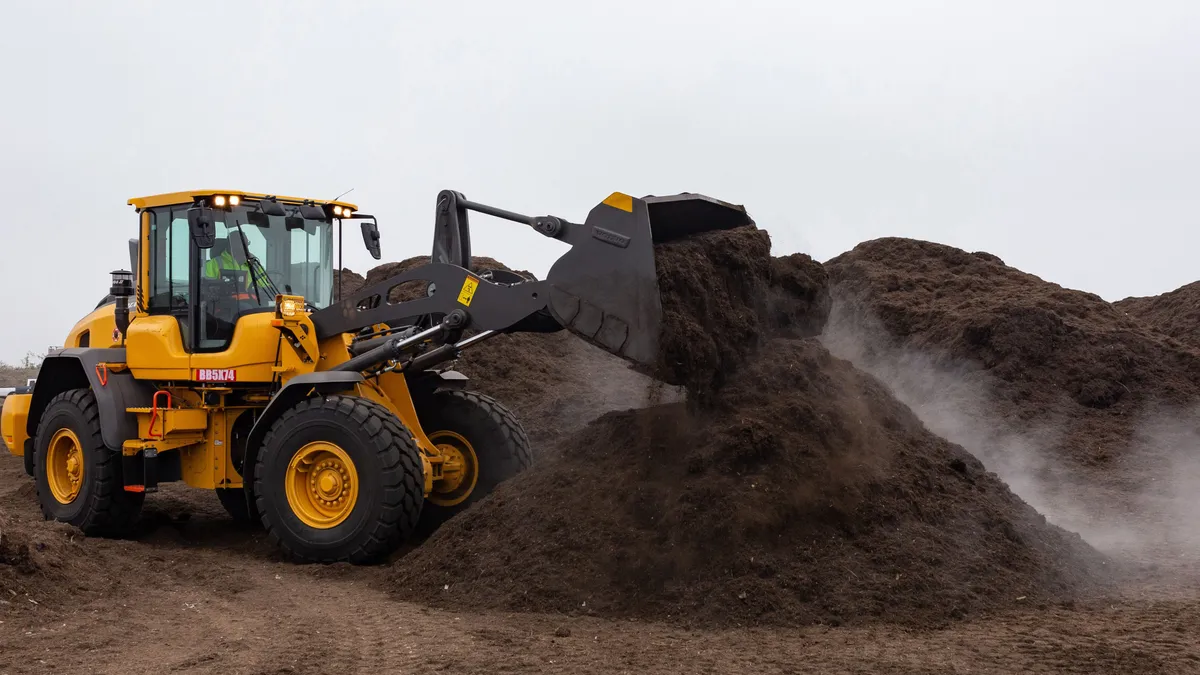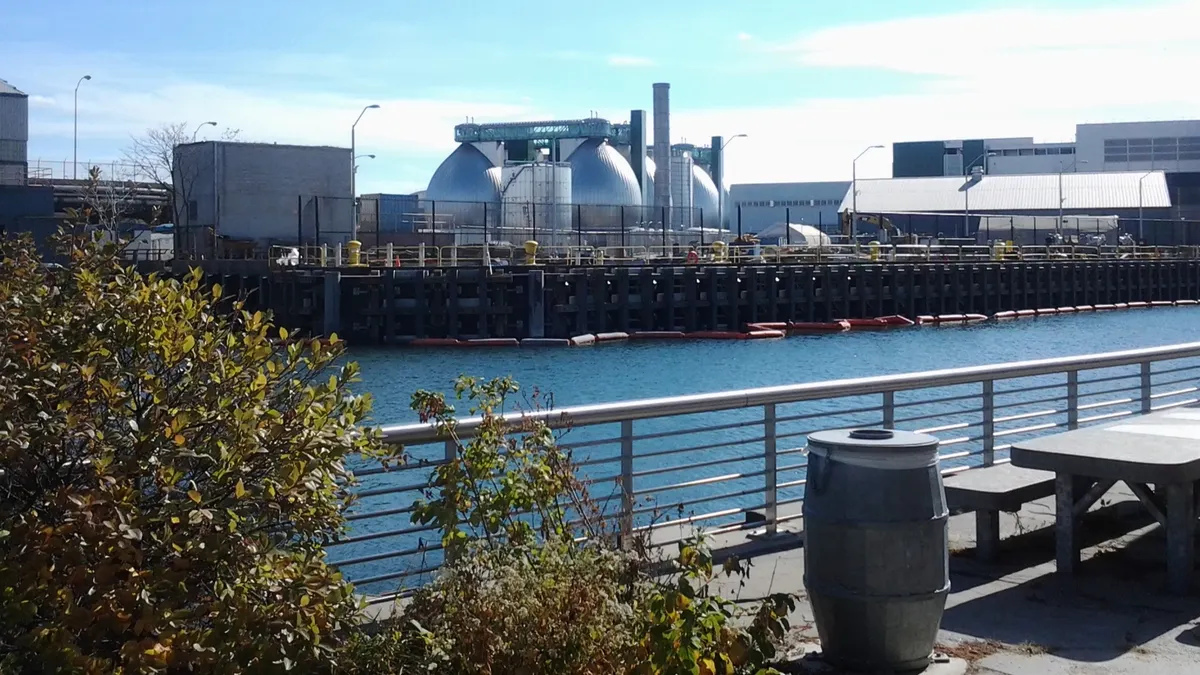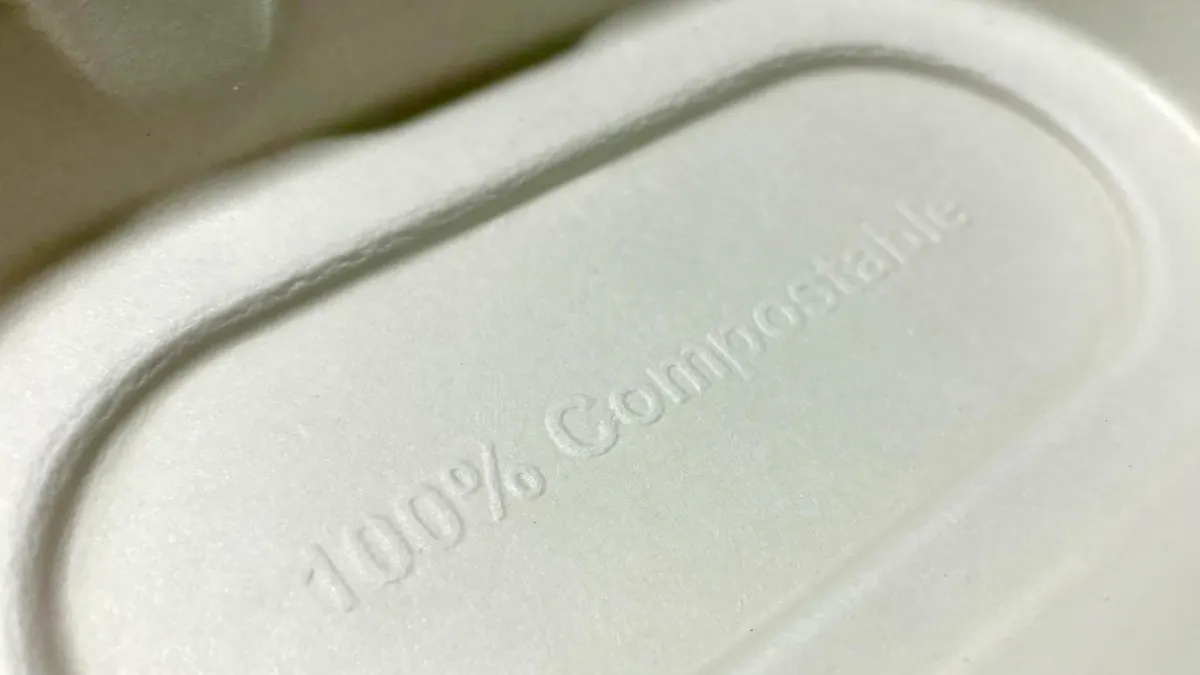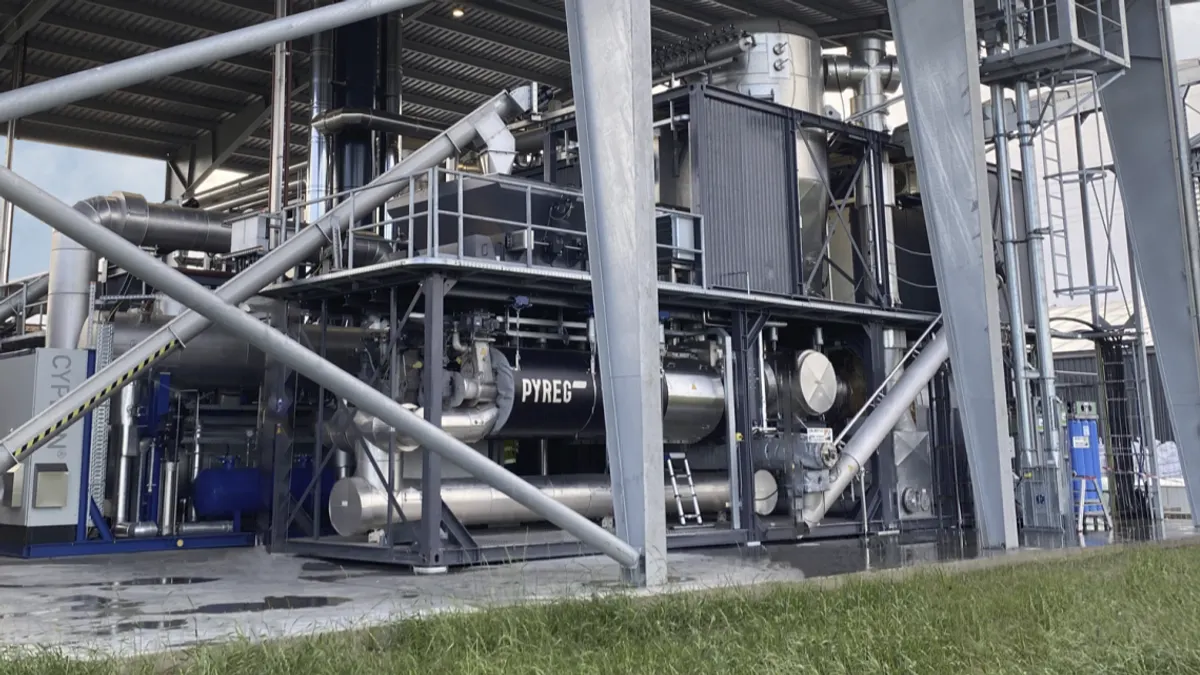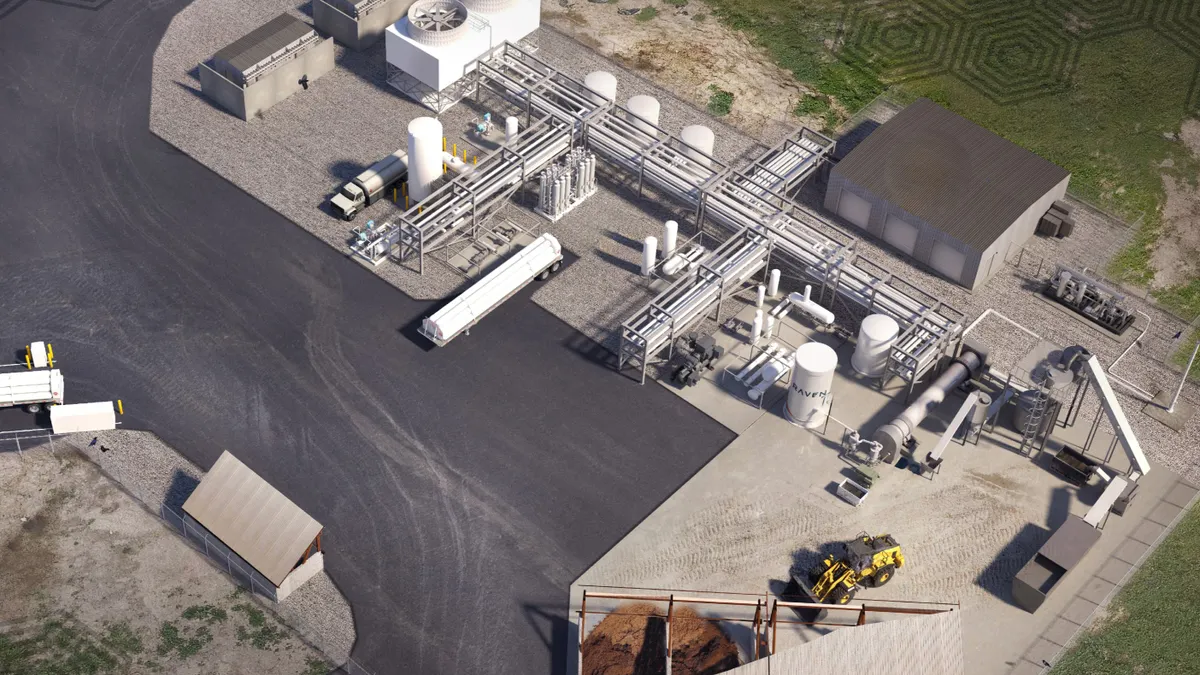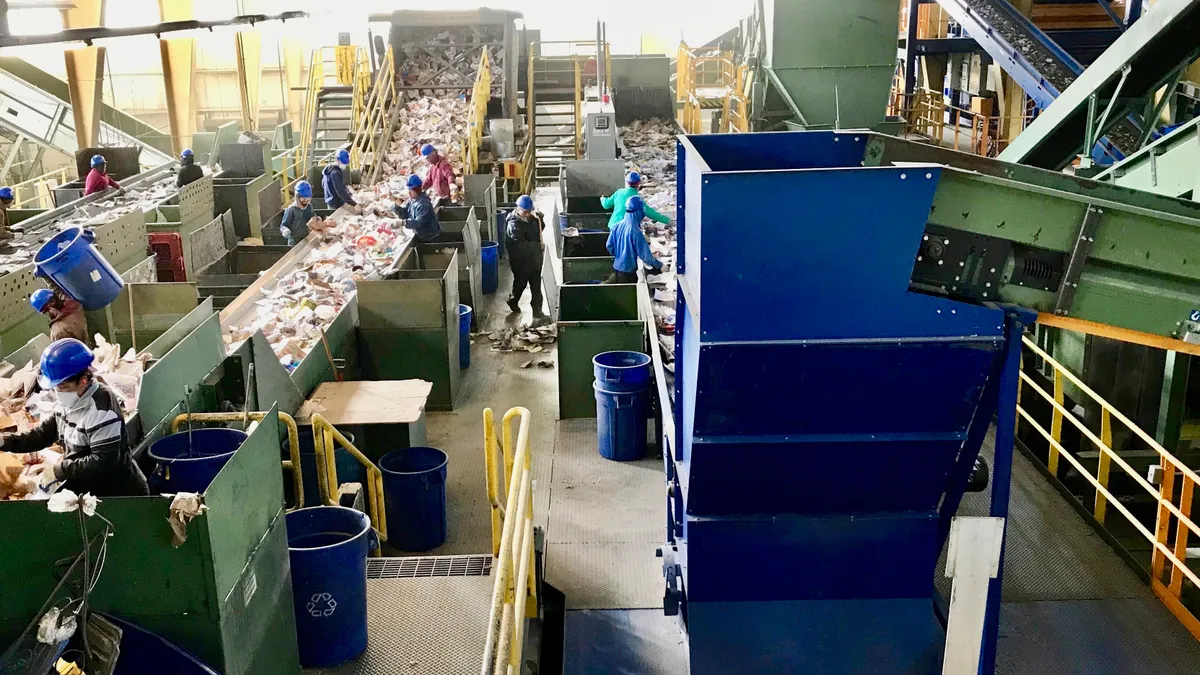California’s Little Hoover Commission, an independent state oversight agency, approved a draft report Tuesday that recommends the state legislature consider a “temporary pause” on implementing the SB 1383 organics recycling law. CalRecycle and multiple waste industry representatives pushed back strongly against the idea.
While this report’s suggestion that the state pause enforcement of the law is non-binding, it is a sign of the ongoing questions about the nation’s most expansive organics recycling plan. SB 1383 aims to cut organic waste disposal 75% and reduce edible food waste 20% by 2025. According to the report, the state is “poised to miss” these targets.
The law was signed in 2016, but implementation has been slow due to a multiyear rulemaking period and pandemic-related delays. Concerns about cost, practicality and regulatory complexity have been rampant among the local jurisdictions that are responsible for compliance in the face of expensive penalties. This has led to major work even in jurisdictions that already had robust waste and recycling programs.
“Successfully implementing the bill will require changes in law and regulation, additional funding and creating a more holistic approach to reducing landfill methane emissions. Local jurisdictions must be given a fair and realistic amount of time to make necessary changes,” the report states. “None of this can happen overnight, and it is worth taking the time to get it right instead of spending years mired in court cases.”
The commission first began discussing waste issues before the pandemic, and it initially considered focusing on the state’s ailing container redemption program before pivoting to SB 1383. The group’s work included three public hearings and one virtual roundtable last year, followed by months of staff research. The bipartisan group includes current and former state lawmakers. Its work has previously led to legislative movement on other issues.
"The population at large needs to have a better understanding about what Sacramento is asking them to do, otherwise they're just going to find ways to not do it,” said Chairman Pedro Nava during the meeting. He called the pause recommendation “a modest approach to resolving the overall goal of what this bill represents.”
The report includes 11 other recommendations related to public education, permitting requirements, market development, local compliance pathways, methane detection satellites and more. It suggested exempting counties that produce less than 200,000 tons of waste per year as well as separating edible food recovery requirements from the program. For the most part, these recommendations were considered less controversial among those who testified.
Debating a pause
CalRecycle Director Rachel Machi Wagoner said the pause idea was “absolutely detrimental” and that “if we were to suggest to the legislature to pause 1383 [it] would send a really, really dire market indicator” to investors in the organics space. Wagoner also noted that an estimated $500 million had been spent on these efforts so far.
According to data shared by CalRecycle after the report was written, 445 of the 614 local jurisdictions with compliance requirements now have some form of residential food waste collection program. The agency also said that “nearly all” of those communities have “new or expanding food recovery programs” and “expanding commercial food collection and recycling programs.”
The agency said 138 jurisdictions have approved rural exemptions, or waivers for low population and high elevation, related to requirements such as collection services. Separately, 126 jurisdictions have applied for more time to comply as allowed under a 2021 state law.
Gracyna Mohabir, a policy associate with Californians Against Waste, said “a pause in implementation would make education nearly impossible" and suggested it could give an unfair advantage to businesses that may have delayed their own investments.
The Resource Recovery Coalition of California, which represents many haulers in the state, testified in “strong opposition” to a pause. Chuck Helget, director of government affairs for Republic Services, said his company had “significant concerns” as it had spent at least $75 million on behalf of jurisdictions to expand organics-related infrastructure.
Agromin CEO Bill Camarillo estimated his composting company had spent $50 million and said it would be “absolutely horrible to stop.” The Bioenergy Association of California said a pause would be “devastating to the state’s climate efforts.” The delayed implementation has already proven difficult for some organics recyclers. Anaerobic digestion company Anaergia recently said the slow ramp-up of state and local organics policies in California had caused financial challenges.
At the same time, representatives from rural areas, such as Madera County, said they needed some form of relief. Staci Heaton, senior policy advocate for the Rural County Representatives of California, said “our members have been the ones already under threat of enforcement," and many were frustrated by "myriad mixed messages" from CalRecycle.
Multiple commissioners said they were supportive of the law’s goals, and cognizant of the investments made to date, but felt the trajectory was off track. Commissioner David Beier, one of the leaders of a subcommittee focused on this issue, said waste and recycling customers were ultimately the ones helping to fund most of the investments being touted. He estimated that waste costs were rising an average of 20% for residential customers and 30% for commercial customers because of the program.
Looking ahead
CalRecycle noted after the meeting that it had awarded at least $56.7 million in grant money to help local governments comply with the law. The agency will be deploying another $155 million worth of grants later this year, but commissioners suggested that would still not be enough to make up the shortfall in progress. The state did not meet a statutory 50% reduction target in 2020 and, in fact, saw waste volumes increase.
"I think we need to real about this. California will not meet its 2025 goals and the question is what to do about it?" said Beier. "It is frankly a wake-up call to the community and to state agencies that much more work has to be done if we're going to have any reasonable prospect of securing the goals we agree with.”
The report also questioned whether California has adequate organics processing capacity to even handle the projected volumes, if and when they can be collected. Opinions vary within the state’s organics recycling community about capacity, and CalRecycle pushed back on the conclusion.
“California is rapidly building infrastructure for recycling organics,” said agency spokesperson Lance Klug via email, noting the state has 206 facilities in operation, not including community composting, “with many more expanding, or siting in the state in the coming years.” Klug said this includes the potential for 21 more anaerobic digestion facilities.
While the legislature and Gov. Gavin Newsom have approved prior efforts to update aspects of SB 1383, none were of the scope proposed by this report. Nick Lapis, director of advocacy for Californians Against Waste, said in a statement that “we are confident that neither the legislature nor the administration has any interest in pausing implementation of SB 1383.”
The deadline for bills to pass out of the chamber where they were introduced is June 2 — unless rules are waived, which is uncommon — and the state’s legislative session ends in September. Otherwise, any new bills inspired by this report would likely be taken up in the 2024 legislative session.


